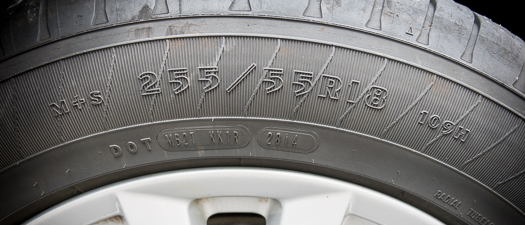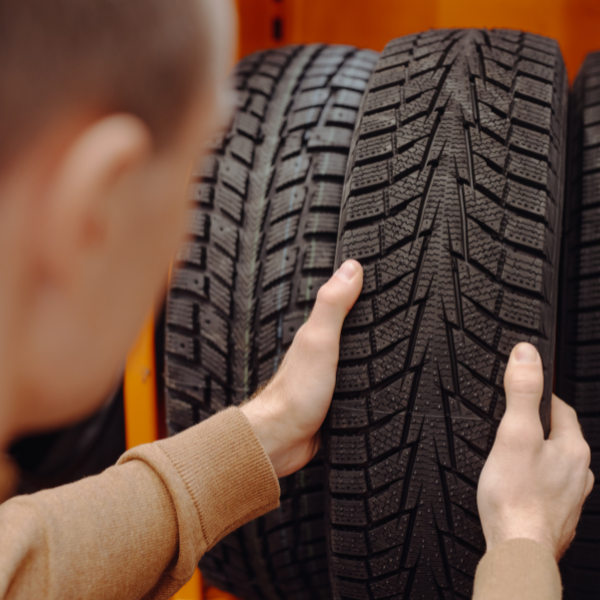
Dec 6, 2021
What's the Difference Between Winter, Summer, and All-Season Tires?
You might think to yourself, "Is there really a big difference between winter, summer, and all-season tires?" or "Can't I just buy all-season tires and be covered for all types of weather conditions?" Sullivan Tire is here to tell you there is a big difference between these three types of seasonal tires and it's important to understand the differences and it's not just for show. Since your tires are the only point of contact between you and the road, make sure you're buying the best tires for the conditions you'll be driving in.
So what's the main difference between winter, summer, and all-season tires? It comes down to two factors: tire tread pattern and rubber compound. Each seasonal tire is made up of a chemically engineered rubber compound and tread pattern, both specifically designed to perform its best in its designated weather condition.
All-Season Tires
All-season tires combine the technologies of a summer and winter tire, creating a hybrid of the two. You get the best of both worlds with an all-season tire. Their rubber compounds are designed to perform in all types of weather conditions, maintaining flexibility in the winter and stiffness in the hot summer months.
Although all-season tires are a great combination of summer and winter tire technologies, they are not designed for top performance in either extreme winter or summer conditions. For an all-season tire design to be so versatile all year round, it must sacrifice some traction and top performance features to be able to perform in both summer and winter weather conditions.
Are all-season tires right for you?
If you're a driver that does not want to seasonally change their tires from winter to summer or vice versa, or if you're looking for a more affordable option that doesn't involve buying two sets of tires, an all-season tire may be for you. All-season tires are highly recommended in areas where it rains frequently along with drastic temperature fluctuations. If you drive in extreme winter or summer weather conditions throughout the year, it's a safer and more beneficial investment to purchase summer and winter tires.
Winter Tires
Unlike the all-season tire, winter tires are made exclusively for winter weather driving, even if there is no snow. The rubber compound used in a winter tire is designed to perform it's best when the temperatures are consistently at or below 45 degrees. The special compound allows the tire to maintain flexibility in low temperature conditions. The tire tread compound tread patterns differ greatly from all-season or summer tires. They have deeper tread depths with more slots and sipes. The sipes assist with getting as much grip or traction as possible on ice or snow. All of the tread elements combined together allow you to have a better and more controlled handle in the snow, on ice, or in slush.
Every winter tire that has passed the Department of Transportation (DOT) regulated tests that allows a tire to be considered suitable for severe winter driving conditions will be marked on the tire's sidewall with a three peak mountain snowflake symbol. (See below.)
Attempting to use summer tires in the winter can cause unreliable traction on ice, snow, or slush. Summer tires will become too stiff in the cold and not be able to handle the traction needed on wintry road conditions. It is important to note that once the temperature is consistently over 45 degrees(spring or summer time), continued use of dedicated winter tires will result in rapid treadwear and reduced service life as these soft compounds are not designed for use in higher temperatures.
Learn more about winter tires.
Are winter tires right for you?
If you're driving in 45 degrees or less the majority of the year and also experience extreme winter weather conditions like snow, slush, and ice consistently, winter tires are for you.
Summer Tires
Just like winter tires in cold temperatures, summer tires are designed to specifically handle the hot summer heats and wet or dry conditions that come with them. Using a wider tread with less grooving and a shallower tread depth allow for a larger contact patch on dry road conditions. The summer tire rubber compound is also specifically designed to handle extreme heats, allowing them to maintain their stiffness to gain traction on hot summer pavement.
Summer tires are also known for their performance. They are designed for precise handling and maximum traction on dry, paved roads.
Are summer tires right for you?
Summer tires are geared more towards specialty or higher performance vehicles that rely on gripping dry, paved roads, and are not optimal for use in places where wet traction may be needed on a regular basis.
At the end of the day, the safety of you, your family, and vehicle is the number one priority! Please feel free to contact one of our tire experts at 877-592-8473 or visit any one of our locations across New England. Our tire experts will be happy to assist you in answering any of your questions and deciding on a tire that's best for you and your lifestyle!
Find Tires
Easily find tires for your vehicle and get pricing on our website. To search, all you need is either your desired tire size or your vehicle information.
Find TiresRelated Articles








